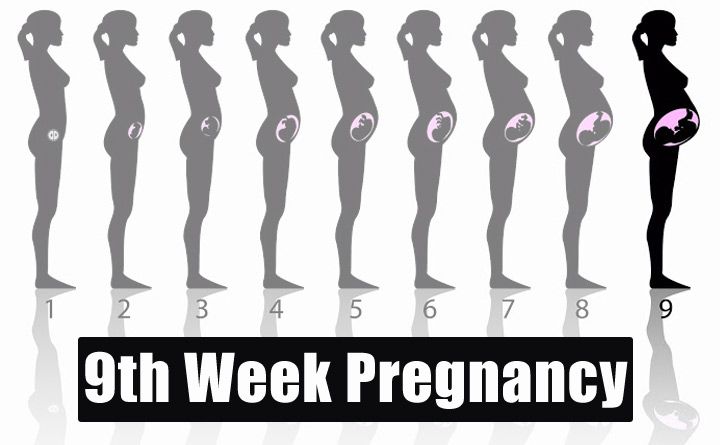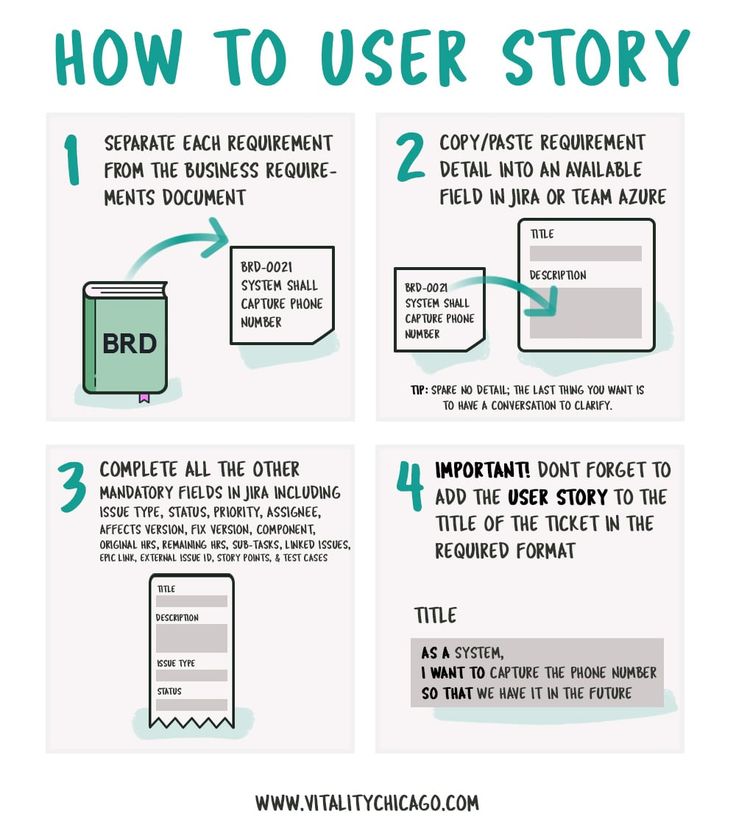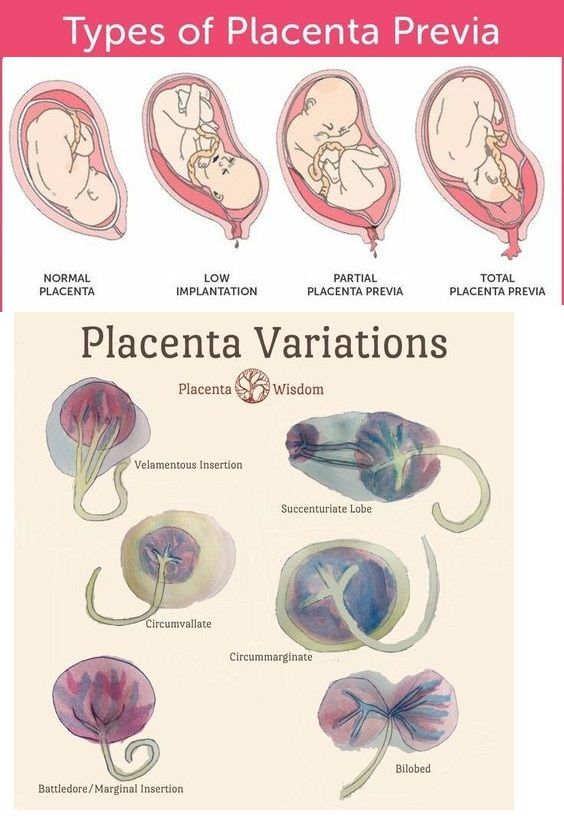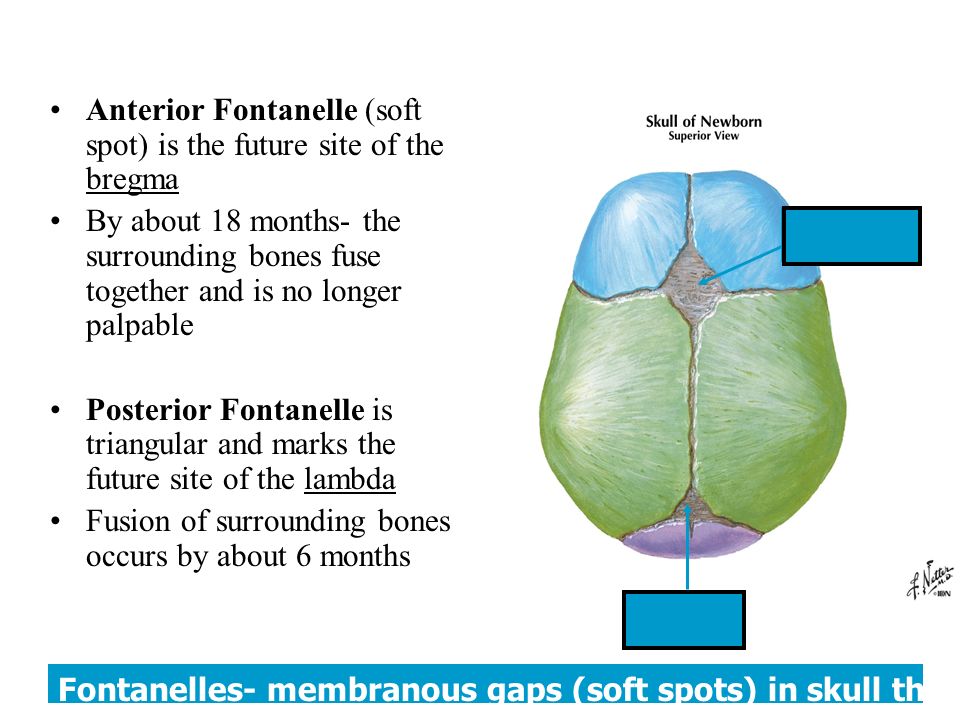Pregnancy signs 10 weeks
10 Weeks Pregnant | Pregnancy
When you're pregnant, you have lots of questions. Our week-by-week pregnancy guide is packed with lots of useful information. From what's happening inside your body, to how your baby is developing, and tips and advice on having a healthy pregnancy – this is your one-stop pregnancy guide!
- 1st trimester
- 2nd trimester
- 3rd trimester
Our week-by-week pregnancy guide is full of essential information. From early pregnancy symptoms to how your baby is growing and developing, you'll find it all here.
- Week 4
- Week 5
- Week 6
- Week 7
- Week 8
- Week 9
- Week 10
- Week 11
- Week 12
Welcome to week 10. Pregnancy is divided into 3 chunks, called "trimesters". You are nearly at the end of your 1st trimester. By the 2nd trimester you will probably have lots more energy and all those signs of early pregnancy will gradually fade away.
Around now, you may have a booking appointment with a midwife. You'll be asked lots of questions about your health and medical history. You can ask lots of questions too.
What's happening in my body?
You may be struggling to do up your jeans. Your uterus (womb) is around the size of a large orange, while your baby is more like the size of an apricot.
You may be feeling bloated and you might find yourself burping or passing wind – this is due to your hormones. The female hormone progesterone is just doing its job – relaxing the muscles in your womb so that it can expand along with your growing baby. However, in the process, the muscles in your digestive tract also become looser and this can lead to symptoms such as heartburn.
How to beat the bloating
You can help digestive problems such as bloating and burping by changing what you eat.
Try making yourself 6 small meals a day and avoid eating late at night.
Eat slowly, sip fluids and avoid smoking and alcohol. A short stroll after meals may help. Some people find their symptoms happen after drinking coffee or eating rich, spicy and fatty foods.
Read NHS advice on dealing with indigestion and heartburn in pregnancy.
Early pregnancy symptoms (at 10 weeks)
Your pregnancy symptoms may include:
- extreme tiredness
- nausea
- mood swings
- a metallic taste in your mouth
- sore breasts
- indigestion and heartburn
- headaches
- dizziness
- new likes and dislikes for food and drink
- a heightened sense of smell
- a white milky pregnancy discharge from your vagina
- light spotting (see your doctor if you get bleeding in pregnancy)
- cramping, a bit like period pains
- darkened skin on your face or brown patches - this is known as chloasma or the –mask of pregnancy–
- greasier, spotty skin
- thicker and shinier hair
- bloating and the feeling of being bloated (read ways of dealing with bloating on week 10's page
Read Tommy's guide to common pregnancy symptoms.
If any symptoms are worrying you, talk to your midwife or doctor.
What does my baby look like?
Your baby, or foetus, is now around 30mm long from head to bottom, which is about the size of a small apricot. The baby will be making jerky movements and baby's movement can be seen on a scan.
Your baby is going through another huge growth spurt. The head is still too big for the body, but the face is more recognisably in proportion. The eyes are half closed but can react to light. The ears are starting to form, the mouth now has a delicate upper lip and the nose has 2 little nostrils. The jaw bone is shaping up too, and contains tiny versions of your baby's milk teeth. The heart is beating extremely quickly at 180bpm – that's about 3 times your heart rate.
Action stations
You might have started thinking about where you'd like to have your baby. Would you prefer a hospital or a midwife-led birthing centre? Start doing some research into your local options.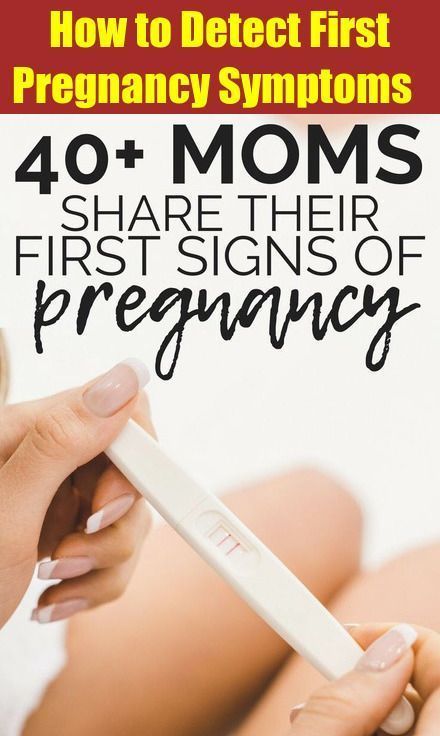
This week you could also:
Share the news with your GP or ask for an appointment with a midwife at your doctors' surgery. Alternatively you can refer yourself to your local hospital – look for contact details on their website.
You'll need to arrange a booking appointment. This usually takes place between weeks eight and 12 and takes around an hour. You can talk about the options for your pregnancy and the birth. Plus you'll be offered screening tests for infectious diseases, and conditions such as Down's syndrome. You could ask about the Maternity Transformation Programme and how it could benefit you.
You will be offered your first dating scan at 8 to 14 weeks.
If it's your first pregnancy, you will probably have around 10 appointments and 2 scans in total. Ask if it's possible to see the same carer for your entire pregnancy, to give you continuity.
Ask your midwife or doctor about online antenatal classes – they may be able to recommend one. The charity Tommy's has lots of useful information on antenatal classes and preparing you for birth.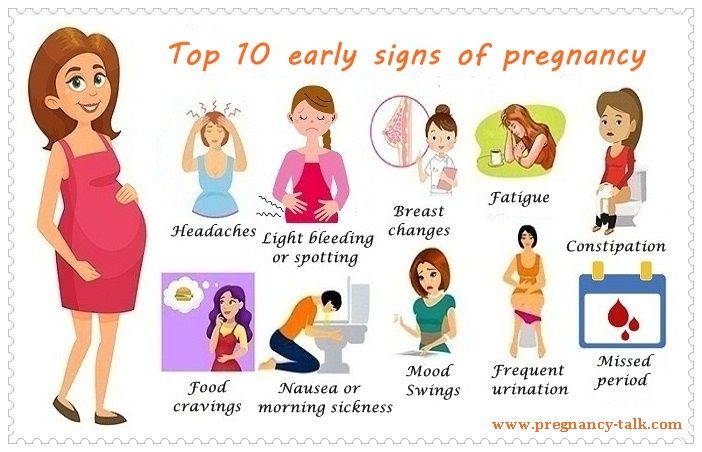
Antenatal classes will give you the chance to meet other people and prepare you for parenthood. The NCT offers online antenatal classes with small groups of people that live locally to you.
Take prenatal vitamins. You're advised to take 400 micrograms of folic acid, every day, until at least week 12. This helps your baby's nervous system to form and offers some protection from conditions such as spina bifida.
To keep bones and muscles healthy, we need vitamin D. From late March/early April to the end of September, most people make enough vitamin D from sunlight on their skin. However, between October and early March, you should consider taking a daily vitamin D supplement because we cannot make enough from sunlight.
Some people should take a vitamin D supplement all year round, find out if this applies to you on the NHS website. You just need 10 micrograms (it's the same for grown-ups and kids). Check if you're entitled to free vitamins.
It's recommended that you do 150 minutes of exercise a week while pregnant.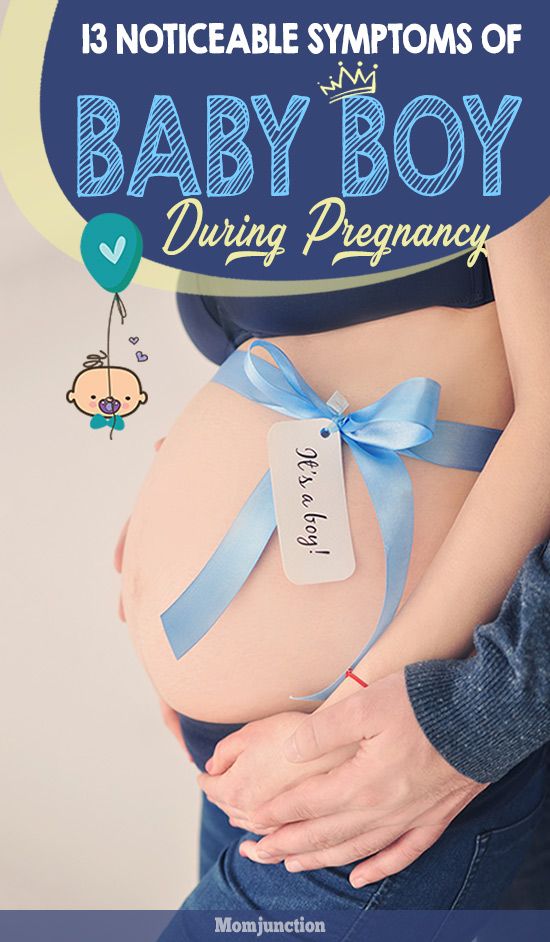 You could start off with just 10 minutes of daily exercise - perhaps take a brisk walk outside. Check out Sport England's #StayInWorkOut online exercises (scroll to the pregnancy section). Listen to your body and do what feels right for you.
You could start off with just 10 minutes of daily exercise - perhaps take a brisk walk outside. Check out Sport England's #StayInWorkOut online exercises (scroll to the pregnancy section). Listen to your body and do what feels right for you.
There's no need to eat for 2. If you pile on the pounds, you could put you and your baby at risk of health problems such as high blood pressure. Eat healthily, with plenty of fresh fruit and veg, and avoid processed, fatty and salty foods. You may be able to get free milk, fruit and veg through the Healthy Start scheme.
If you have a long term health condition, then let your specialist or GP know that you're pregnant as soon as possible. Don't stop taking any regular medication without discussing it first with your doctor.
How are you today? If you're feeling anxious or low, then talk to your midwife or doctor who can point you in the right direction to get all the support that you need. You could also discuss your worries with your partner, friends and family.
You may be worried about your relationship, or money, or having somewhere permanent to live. Don't keep it to yourself. It's important to ask for help if you need it.
Want to know when the baby's due?
Use the NHS's pregnancy due date calculator. You'll get a more accurate date from your doctor or midwife when you have a dating scan (usually at 8 to 14 weeks).
Go back to week 9
Go to week 11
10 Weeks Pregnant: Symptoms and Baby Development
You’ve made it to 10 weeks pregnant, and that means you’re nearly at the end of your first trimester—time flies! Some of your pregnancy symptoms might be starting to subside, while others might be right around the corner. We’ve got more information about what to expect at 10 weeks pregnant in terms of signs and symptoms, plus things to think about and questions your healthcare provider can answer.
Highlights at 10 Weeks Pregnant
Below we’ve highlighted some of the ways your baby is growing and changing, and how you might be feeling at 10 weeks pregnant:
Your little one is starting to look more and more like a baby, with a rounder head and lots of little developments, like eyes, fingers, toes, and tooth buds.

With internal organs in place, your little one is just about 1 inch long.
Though pregnancy symptoms might be at their worst this week, know they’ll soon start to ease.
Since your belly bump might start to show in the coming weeks, now is a good time to consider starting a baby bump photo series!
10 Weeks Pregnant: Your Baby's Development
Your baby is making some big strides this week! Here are some of the exciting developmental steps happening inside your belly:
That little head is taking on a rounder, more human shape, and by now all the internal organs may be in place and starting to work together.
Tiny tooth buds have begun to develop, too.
Your baby’s fingers and toes are growing longer, and the webs that had been between each finger and toe are starting to disappear.
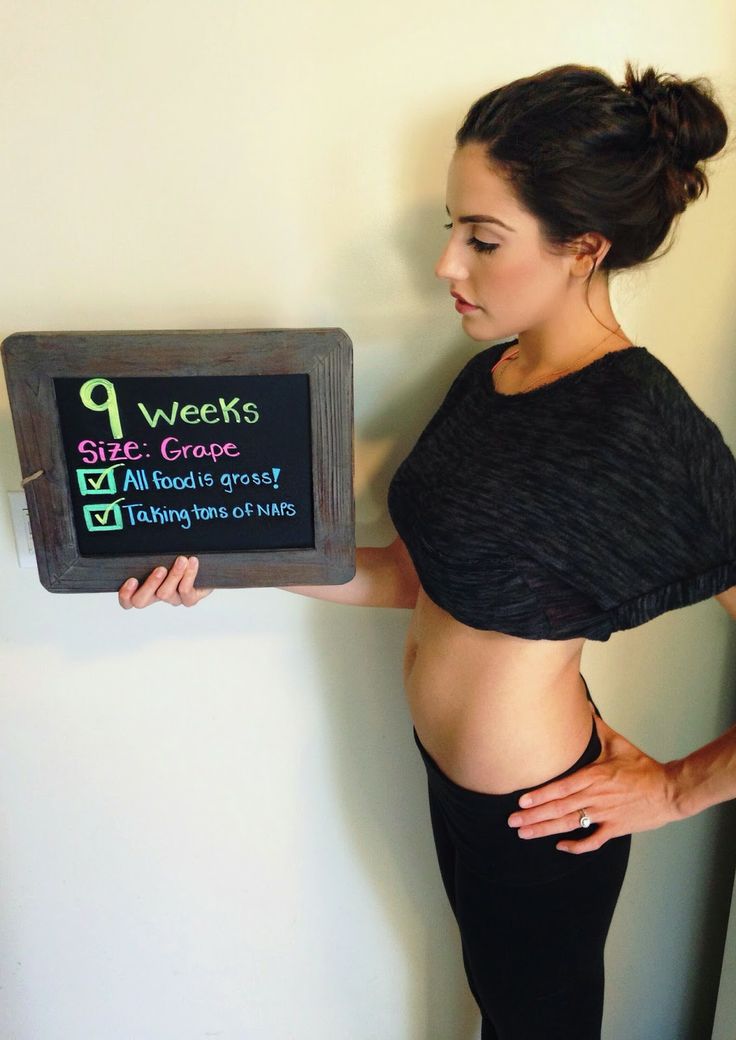
At the moment, your baby’s eyes, eyelids, and ears are continuing to develop, but they’ve still got some growing to do before they’re fully formed.
What’s in store for both you and your baby? Check out our Pregnancy Guide; it contains tips and insights to help you get through the rest of the first trimester and beyond. And even though it’s still too early to know your baby’s gender, you can have some fun with our Chinese gender predictor.
Related pregnancy tool
Fill in your info to get started:
Mom's age at conception
This is a mandatory field.
Baby's Due Date*//
Select date via the calendarPlease select a due date!
How Many Months Is 10 Weeks Pregnant?
Weeks or months? You’ll probably hear your pregnancy described in both ways, though weeks are more common.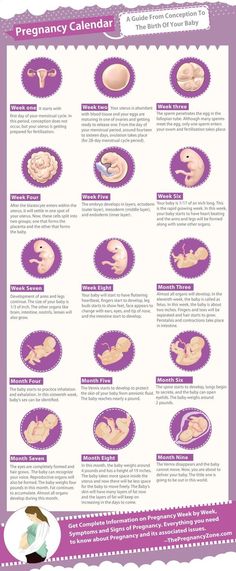 Though there are various methods of assigning the 40 weeks of pregnancy into months, at 10 weeks pregnant you’re likely in your third month of pregnancy, even if you haven’t noticed any belly bump or symptoms!
“If I'm 10 weeks pregnant, when is my due date?” It's thrilling to think about the day you'll meet your new baby! Your healthcare provider will help you come up with this date, but in the meantime, try our Due Date Calculator to get an idea of when your little one may join the world.
Though there are various methods of assigning the 40 weeks of pregnancy into months, at 10 weeks pregnant you’re likely in your third month of pregnancy, even if you haven’t noticed any belly bump or symptoms!
“If I'm 10 weeks pregnant, when is my due date?” It's thrilling to think about the day you'll meet your new baby! Your healthcare provider will help you come up with this date, but in the meantime, try our Due Date Calculator to get an idea of when your little one may join the world.
How Big Is a Baby at 10 Weeks Pregnant?
Your little one is still growing very quickly! At 10 weeks, the average fetus is about the size of a strawberry, and your baby will likely measure approximately 1 inch long.
Your Baby: What Does 10 Weeks Pregnant Look Like?
Check out the illustration below for a look at how things are shaping up inside your belly as you head toward the end of the first trimester.
Your Body at 10 Weeks Pregnant
At 10 weeks pregnant, your uterus is about the size of a large orange, whereas before you became pregnant it was about the size of a small pear. Around this time, you likely have had or will soon have an appointment with your healthcare provider that includes an internal and external abdominal exam to determine the size and position of your baby.
Around this time, you likely have had or will soon have an appointment with your healthcare provider that includes an internal and external abdominal exam to determine the size and position of your baby.
Your healthcare provider might also perform blood tests to find out if you have any infections, determine your blood type and Rh factor, and check whether your own immunizations are up to date. There’s a lot to do, but your provider will be able to walk you through the details and schedule future appointments and tests.
10 Weeks Pregnant: Your Symptoms
“Why is week 10 of pregnancy the worst?” This may or may not be a question that's on your mind, but it’s not unusual for pregnancy symptoms to peak around this time, especially when it comes to nausea. The good news is that morning sickness and some other symptoms tend to lessen after the first trimester, giving way to a more comfortable and pleasant second trimester. At 10 weeks pregnant, here are some of the symptoms you may be experiencing:
Morning sickness.
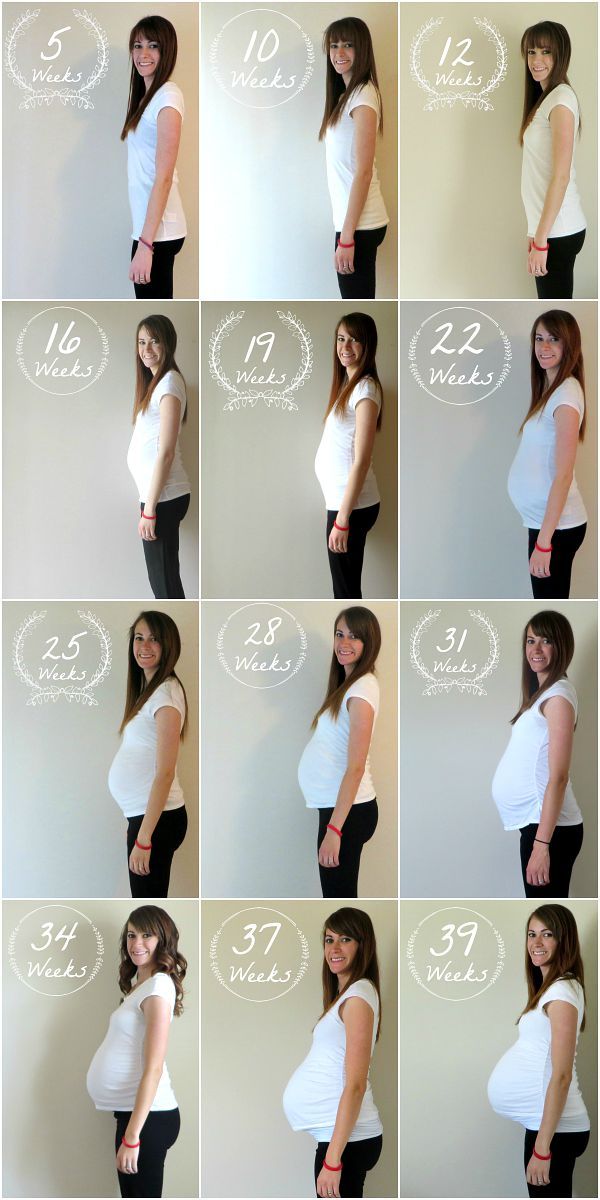 You’re not alone if you’re 10 weeks pregnant and still experiencing stomach pain, nausea, and other symptoms of morning sickness. Remember, there’s light at the end of the tunnel, but if you experience a more severe form of morning sickness called hyperemesis gravidarum, consult your healthcare provider.
You’re not alone if you’re 10 weeks pregnant and still experiencing stomach pain, nausea, and other symptoms of morning sickness. Remember, there’s light at the end of the tunnel, but if you experience a more severe form of morning sickness called hyperemesis gravidarum, consult your healthcare provider.
Round ligament pain. This is one of the more uncomfortable pregnancy symptoms. Round ligaments are bands of tissue that support the uterus, and they stretch and soften as your baby grows during pregnancy. At 10 weeks pregnant, you might feel lower back pain or pain on your side when these ligaments tighten, such as when changing positions in sleep. Light stretching and gentle movements may help relieve the discomfort, but if it doesn’t go away on its own, or if you also have a fever, talk to your healthcare provider.
Minimal weight gain. Even though your clothes may be tighter, you may not have gained much weight—or you may have lost a little if you've been dealing with morning sickness.
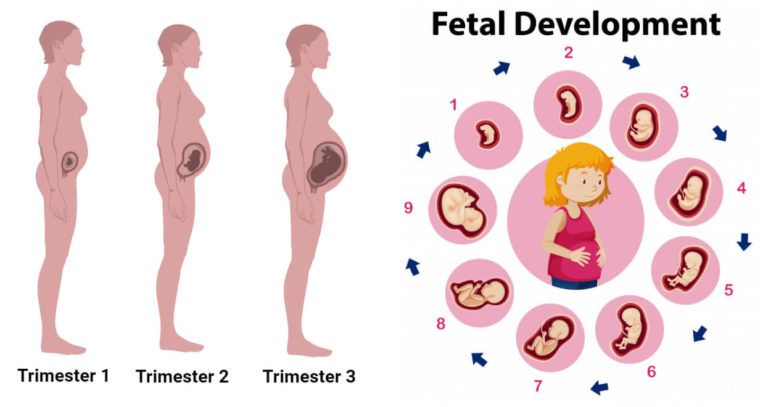 Read up on pregnancy weight gain and be sure to talk to your healthcare provider if you’re concerned. You can also try using our Pregnancy Weight Gain Calculator tool for an estimate of healthy weight gain based on your pre-pregnancy weight.
Read up on pregnancy weight gain and be sure to talk to your healthcare provider if you’re concerned. You can also try using our Pregnancy Weight Gain Calculator tool for an estimate of healthy weight gain based on your pre-pregnancy weight.
Exhaustion. You might feel like napping at every opportunity. This could be thanks to the increased levels of the hormone progesterone in your body. Sleeping while pregnant isn’t always easy, though, so be sure to consult your healthcare provider if you have any questions or concerns. Sleep is important!
Headaches. Pregnancy could trigger the occasional headache. If you're experiencing this symptom, try to rest in a darkened room and apply an ice pack to your head or neck to help relieve the pain. Contact your healthcare provider if the headache persists or is severe.
Mood swings. Hormonal changes may play a role in the highs and lows you feel when you’re about 10 weeks pregnant.
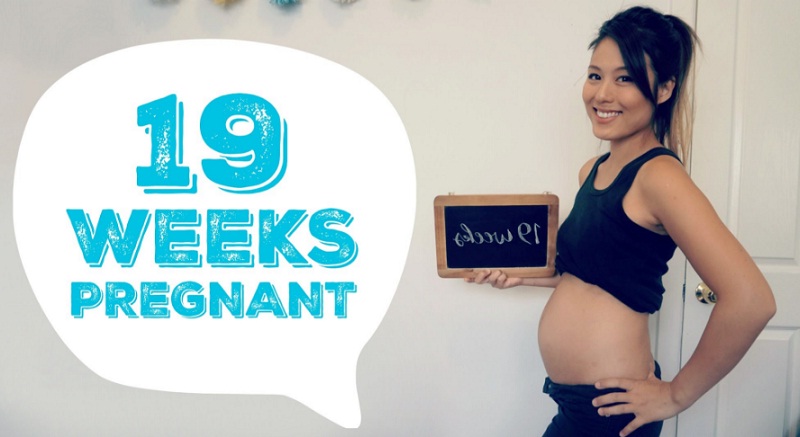 You may find it helpful to distract yourself by chatting with friends, watching funny TV shows or movies, or treating yourself to a massage—just be sure to choose a trained massage therapist who knows about safe massage techniques for those who are pregnant.
You may find it helpful to distract yourself by chatting with friends, watching funny TV shows or movies, or treating yourself to a massage—just be sure to choose a trained massage therapist who knows about safe massage techniques for those who are pregnant.
Discharge. You might be seeing more vaginal discharge than before, which is caused by your increased blood supply and higher hormone levels. This normal discharge is clear to milky-colored, nearly odorless, and may appear slightly yellowish on your underwear. At ten weeks pregnant or later, contact your healthcare provider if you notice a strong odor or color changes in the discharge, or if you experience spotting, bleeding, or itching in the vaginal area.
Acne. If you’re experiencing acne now and didn’t before you got pregnant, or if your acne is worse now than before, it may be one of your pregnancy symptoms. Pregnancy acne is a hormone-related symptom and will likely clear up soon after your baby is born.
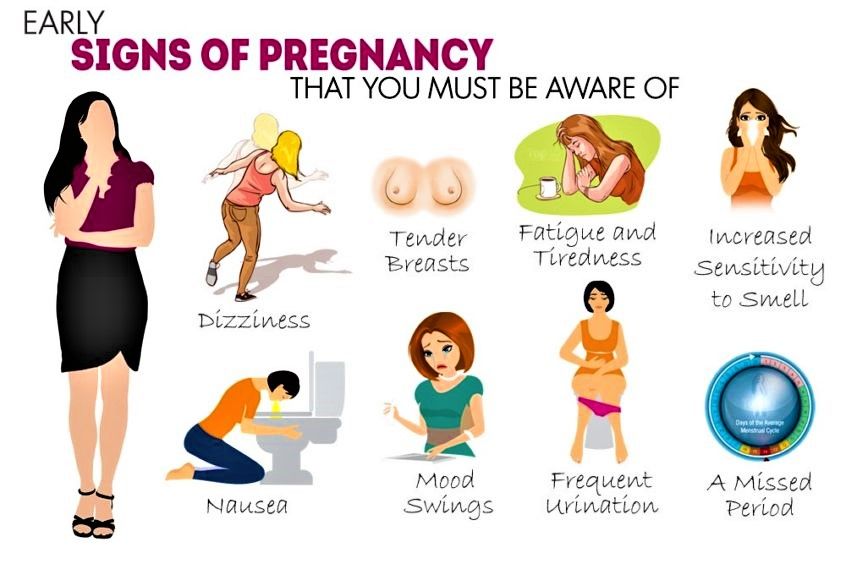
How Big Is a Pregnant Belly at 10 Weeks?
At 10 weeks pregnant, are you showing or just bloated, you may wonder? It’s possible that your pregnant belly’s size will increase at 10 weeks, but a baby bump doesn’t usually show until around weeks 12 to 16, even if you're pregnant with twins. This is when your uterus starts to move outside your pelvis area. Keep in mind that right now, your little one is only as big as a strawberry! Whether you're showing or not, you may be curious to know if you can feel your baby move at 10 weeks. Though your little one is probably moving around inside your uterus, they’re likely too small for any movements to be felt. Around 18 to 20 weeks you may experience what's known as quickening, meaning that you feel your baby move for the very first time.
What Does 10 Weeks Pregnant Look Like?
For a better idea of what your belly might look like around 10 weeks pregnant, when you’re in your third month of pregnancy, check out the image below.
10 Weeks Pregnant: Things to Consider
As you make your way through pregnancy, there are plenty of important things to consider, from adjusting your diet to caring for your body. Check out our list below.
Reduce your caffeine intake, if you haven’t already done so. Many healthcare providers recommend reducing or eliminating caffeine from your diet so that you’re not having more than 200 mg per day (the equivalent of one 12-ounce cup of coffee). Cutting out caffeine can also help you sleep better.
As your pregnancy progresses, the weight of your growing uterus can hinder blood flow to the lower parts of your body. When this happens, the veins in your legs can become swollen, sore, and blue. Varicose veins are not preventable, but you can take steps to ease the discomfort and prevent them from becoming worse.
Don’t sit with your legs crossed or stand or sit for long periods of time.
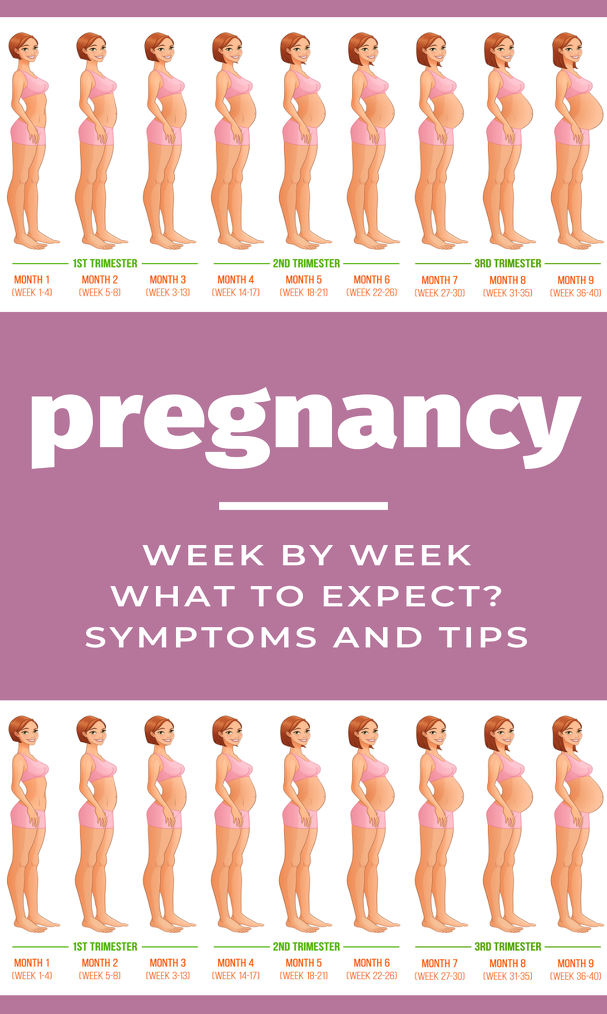
Try wearing support hose and propping your legs up whenever you can to help improve blood flow.
Also, stay active, move around, and add some safe pregnancy exercise to your daily routine if your healthcare provider approves.
As you anticipate your belly showing, 10 weeks is a good time to start taking pictures and starting a baby bump progression photo series, if this is something you might like to do. You could start as soon as you start showing, or even a little earlier. The series is easy to do:
Pick a day of the week, where you’d like to stand, and what to wear. Some wear a tight-fitting top, while others roll their top up to reveal their belly.
Stand to the side and either take a selfie or have someone take a full-length photo of you.
Once your baby is born, you can even take a few postpartum shots with your baby in your arms. You’ll love being able to look back on how your belly grew as your pregnancy progressed.
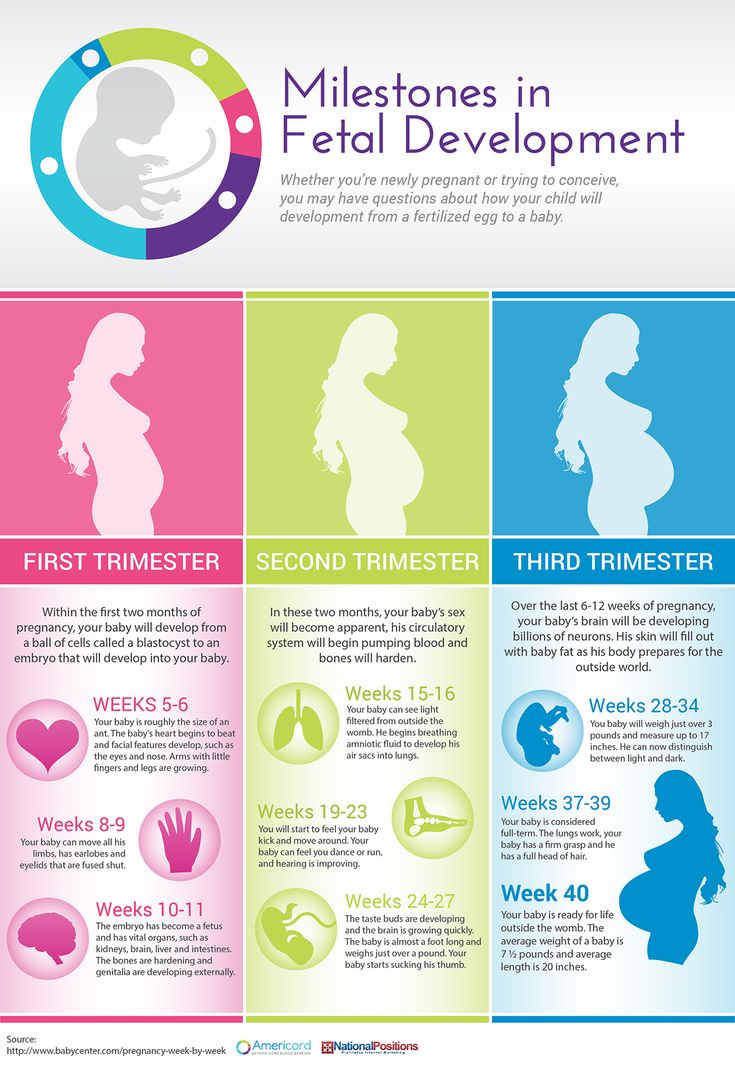
10 Weeks Pregnant: Questions for Your Healthcare Provider
Remember that your healthcare provider is always there for you, so feel free to consult them about any questions or concerns you have now and in the weeks to come. Some common questions at 10 weeks pregnant include:
When can I hear my baby’s heartbeat, if not at 10 weeks?
When will I be able to know if I’m pregnant with twins?
Are any genetic screening tests recommended? If so, when would these take place? Keep in mind that genetic testing is completely optional, and your healthcare provider can help you understand what risk factors or family history might impact your baby.
What is chorionic villus sampling and is it recommended?
Is a nuchal translucency ultrasound recommended?
10 Weeks Pregnant: Your Checklist
As you start to settle into your pregnancy and get used to the various emotional and physical symptoms, consider the following to-dos:
Get a professional bra fitting and buy comfortable underwear and well-fitting bras if needed.

Start to plan a second trimester babymoon! You’re nearly in the trimester that's sometimes called the “honeymoon” period of pregnancy, when you may get your energy levels back, so this could be the right time to take a short break. Besides, after the second trimester, you may not have the chance to get away for a while, so this might be the perfect time to book a relaxing trip.
When you have a minute, read up on pregnancy warning signs you should not ignore. You shouldn’t worry unduly, but it helps to be informed so you know what signs to look out for.
10th week of pregnancy: sensations, signs, fetal development
Pregnancy
Article
2.6/5 226 reviews
By the 10th week of pregnancy, the sensations caused by hormonal changes in a woman's body usually subside. Morning sickness, dizziness and weakness may still bother you, but gradually give way to the "honeymoon" of pregnancy, which comes in the second trimester. The embryo continues to actively grow, develop, and at the 10th obstetric week of pregnancy acquires the status of a fetus. nine0003
Morning sickness, dizziness and weakness may still bother you, but gradually give way to the "honeymoon" of pregnancy, which comes in the second trimester. The embryo continues to actively grow, develop, and at the 10th obstetric week of pregnancy acquires the status of a fetus. nine0003
8 min. for reading By Oksana Negrich Feb. 17, 2022
10 week fetal development
At 10 weeks pregnant, the baby is about the size of a strawberry or a little cream. Now his height is 30–40 mm, and his weight is about 5 grams. The body of the child is covered with thin fluffy hairs - lanugo. nine0003
All the vital organs of the baby are already formed, but they continue to grow and improve. The head, still large in relation to the body, is rounded, the neck appears, the brain and nerve endings are actively developing.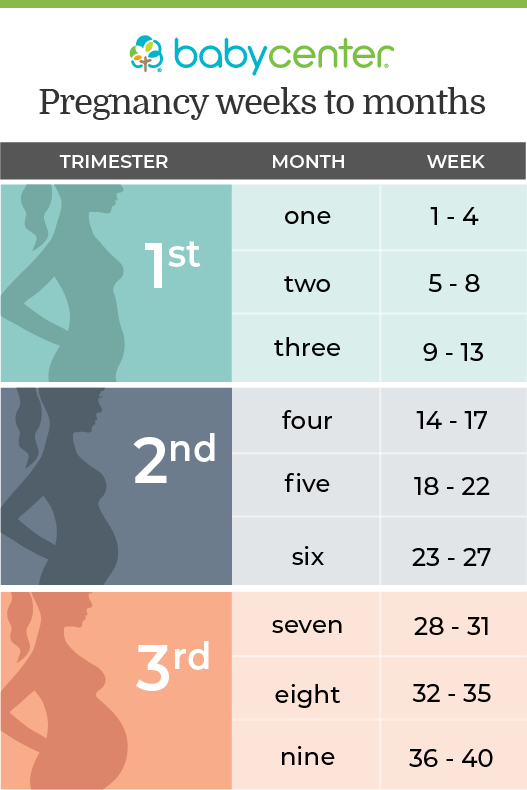
By the 10th week of pregnancy, all the facial bones appear, so the facial features become clearer. Eyes and eyelids have already formed, eyebrows are starting to grow, ears have acquired lobes. The rudiments of milk teeth appear, which erupt in the first year after the birth of a child. nine0003
The bones of the skeleton, previously more like cartilage, harden. Therefore, the crumbs during this period need more calcium. The limbs become stronger, the membranes between the fingers disappear, the nails begin to grow. Muscles develop intensively, the baby learns to bend and unbend his arms at the elbows and wrists. Along with this, the umbilical cord becomes longer, which allows the child to move inside the amniotic sac, starting from its walls. Already at the 10th obstetric week of pregnancy, the fetus is actively moving, but the expectant mother does not yet feel it. nine0003
Muscle tissue appears not only on the limbs, but also in the oral cavity, which allows the baby to swallow. The tiny tongue is covered with taste buds.
The tiny tongue is covered with taste buds.
The child's intestines, kidneys, liver and pancreas are already working. The heart is still beating very fast - up to 160-170 beats per minute.
10th week of pregnancy: well-being and changes in the mother's body
At the 10th week of pregnancy, the belly is still little noticeable, but the figure is gradually rounded: the breasts noticeably increase, and the hips move forward when walking. The uterus during this period reaches the size of a large orange and can put pressure on neighboring organs, provoking frequent urge to urinate. Sometimes this can be accompanied by incontinence, which manifests itself during strong exertion, laughter, sneezing or coughing. nine0003
Despite a slight increase in the waist, during the 10th week of pregnancy, the sensations in the abdomen are not very pleasant. The round ligaments that support the growing uterus are stretched, causing pain in the lower abdomen. Discomfort is aggravated by turning while lying down or during heavy physical exertion.
Important!
Normally, round ligament tenderness resolves on its own. But if the discomfort is too strong, accompanied by fever or strange discharge, be sure to consult a doctor. nine0038
High levels of the hormones relaxin and progesterone are kept in the blood, which are necessary for bearing a child, but at the same time they often cause drowsiness and increased fatigue. Also, hormonal changes in the body stimulate hair growth, even in places where there were not so many of them before. But do not be afraid, after childbirth it will pass.
The growing uterus and placenta require more blood, so during this period the heart works 40-50% more intensively. Also, due to an increase in blood volume and an increase in hormone levels at the 10th week of pregnancy, the discharge becomes more abundant. Beli (the so-called normal physiological discharge) is normally transparent, milky white or slightly yellowish, mucous and practically odorless.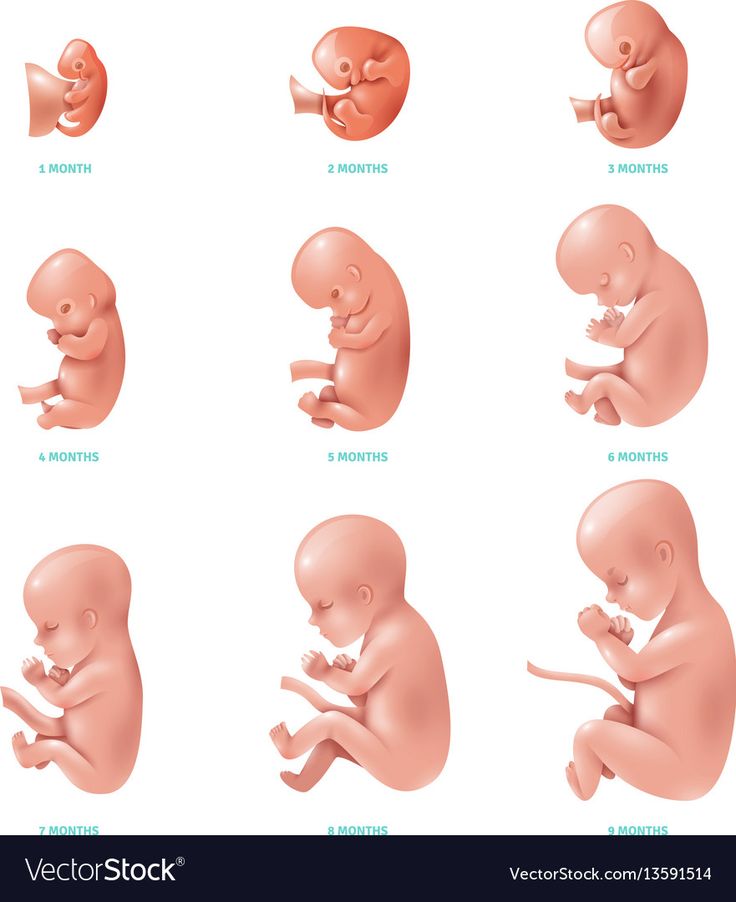 nine0003
nine0003
Important!
If the discharge has a peculiar smell or color change, if it is accompanied by itching or discomfort in the vaginal area, be sure to consult your doctor.
Toxicosis at this stage is still a concern, but not so acute. By week 12, nausea usually subsides completely. As for sex at the 10th week of pregnancy, you should be careful, but you don’t need to give up intimate life at all. After all, sex is a pleasant way of emotional unloading and strengthening the closeness of future parents. And in order not to harm the baby, use barrier contraception and give up for a while from excessive activity or risky experiments. nine0003
What to look out for at 10 weeks pregnant
The first trimester is the most important and stressful period of pregnancy. During the first 8-10 weeks, the fetus is the most fragile. Any external factors - stress, illness, improperly selected medications, insomnia, nutritional problems - can affect the formation of vital organs and systems and cause irreversible consequences.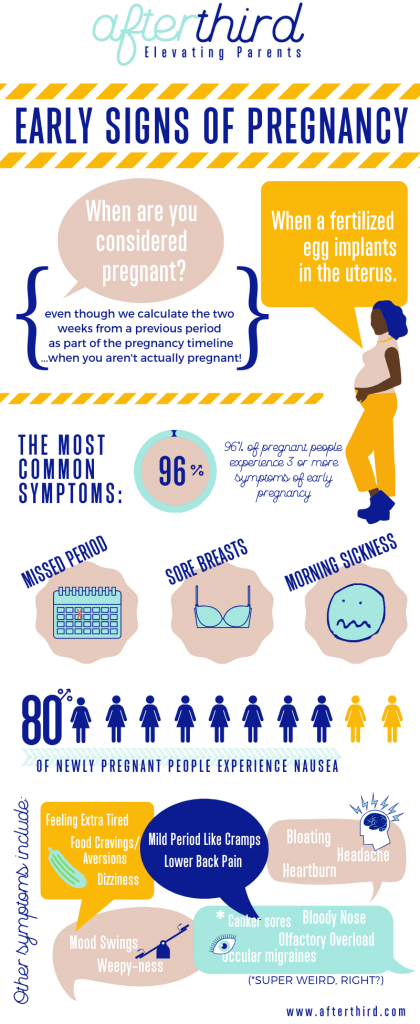
By the 10th week of pregnancy, the dangers are slightly less. The crisis period has actually passed, since the main organs have formed and strengthened the placenta, which protects the baby from substances harmful to him. But this does not mean that you can completely relax and neglect the doctor's recommendations. nine0003
At the 10th obstetric week of pregnancy, you still need to carefully monitor your well-being so as not to miss alarming symptoms that may indicate health-threatening conditions.
- Pain in the lower abdomen. Many mothers during this period experience discomfort caused by sprains of the round ligaments - and this is normal. But if during pregnancy at week 10 the stomach hurts constantly, if the pain is severe, sharp, accompanied by fever or chills, you should immediately consult a doctor for help. nine0066
- Severe headaches. The first weeks of pregnancy are often accompanied by periodic headaches, weakness and dizziness.
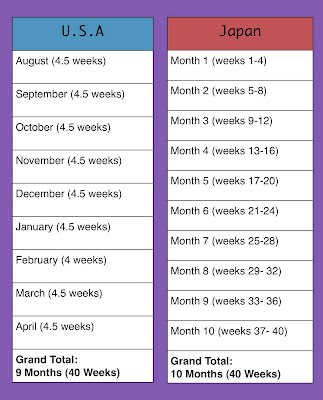 This reduces the quality of life, but does not pose a danger to mother and child. But if the head hurts continuously, the attacks are very strong, up to nausea, loss of orientation and darkness in the eyes, it is worth scheduling a visit to the doctor as soon as possible. Such symptoms may indicate high blood pressure, which requires proper treatment and supervision by a specialist. nine0066
This reduces the quality of life, but does not pose a danger to mother and child. But if the head hurts continuously, the attacks are very strong, up to nausea, loss of orientation and darkness in the eyes, it is worth scheduling a visit to the doctor as soon as possible. Such symptoms may indicate high blood pressure, which requires proper treatment and supervision by a specialist. nine0066 - Painful nausea. Toxicosis at the 10th week of pregnancy is absolutely normal. But if nausea and vomiting increase and do not stop during the day, perhaps these are signs of hyperemesis - a severe form of toxicosis. Only a specialist can help get rid of such a syndrome.
- Itching and burning when urinating. Urging to the toilet is common during pregnancy. But be careful: if urination is accompanied by itching, burning or pain, you need to consult a doctor and make sure that these are not signs of a urinary tract infection. nine0066
- Bloody discharge.
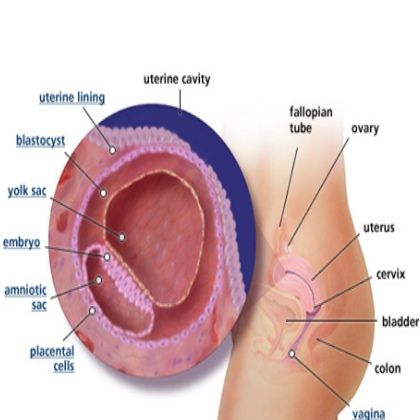 Blood on underwear is one of the most alarming symptoms during pregnancy. Therefore, if the discharge has become pink, dark red, brown, and even more so a bright scarlet hue, consult a doctor immediately.
Blood on underwear is one of the most alarming symptoms during pregnancy. Therefore, if the discharge has become pink, dark red, brown, and even more so a bright scarlet hue, consult a doctor immediately.
How to take care of yourself during pregnancy
1. Pregnancy 10 weeks: a balanced diet
Your baby needs enough nutrients, vitamins and minerals to grow and develop properly. Therefore, throughout pregnancy, it is important to eat healthy and varied food: lean meat, fish, dairy products, vegetables, fruits, whole grain bread. nine0003
In addition, in the 10th week of pregnancy, pay special attention to cottage cheese, dairy products, milk and other foods rich in calcium. It is during this period that the bones are actively strengthened in the fetus and the rudiments of teeth are formed, so any food with a high content of calcium is very important.
Important!
If you can't eat certain foods, ask your doctor for prenatal vitamins.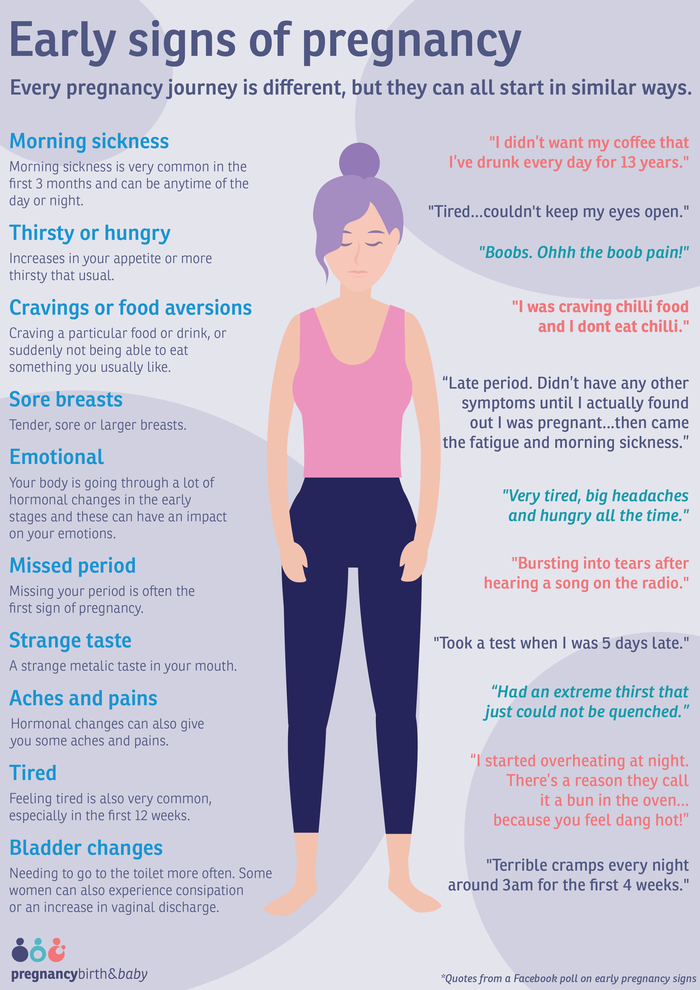 But in no case do not self-medicate - an excess of some substances can be no less harmful than a deficiency. nine0038
But in no case do not self-medicate - an excess of some substances can be no less harmful than a deficiency. nine0038
It is also advisable to avoid unhealthy foods and drinks during pregnancy. First of all, these are:
- Alcohol, carbonated soft drinks.
- Fatty, fried and smoked foods.
- Sugar and sweets in large quantities.
- Fish and seafood high in mercury (certain types of tuna, marlin, king mackerel, tilefish, and others).
- Foods that are too salty or spicy.
- Raw meat and raw fish dishes. nine0066
- Soft cheeses with mold.
- Cured and dried meat and fish that have not been cooked.
It is also important to limit coffee consumption to 2 cups a day, then this will not harm the baby's health. And don't forget to drink plenty of pure water.
2. Healthy sleep and rest
Until the end of the first trimester, the expectant mother continues to experience drowsiness and fatigue. Therefore, it is important to establish a regimen for good rest and a sufficient amount of sleep.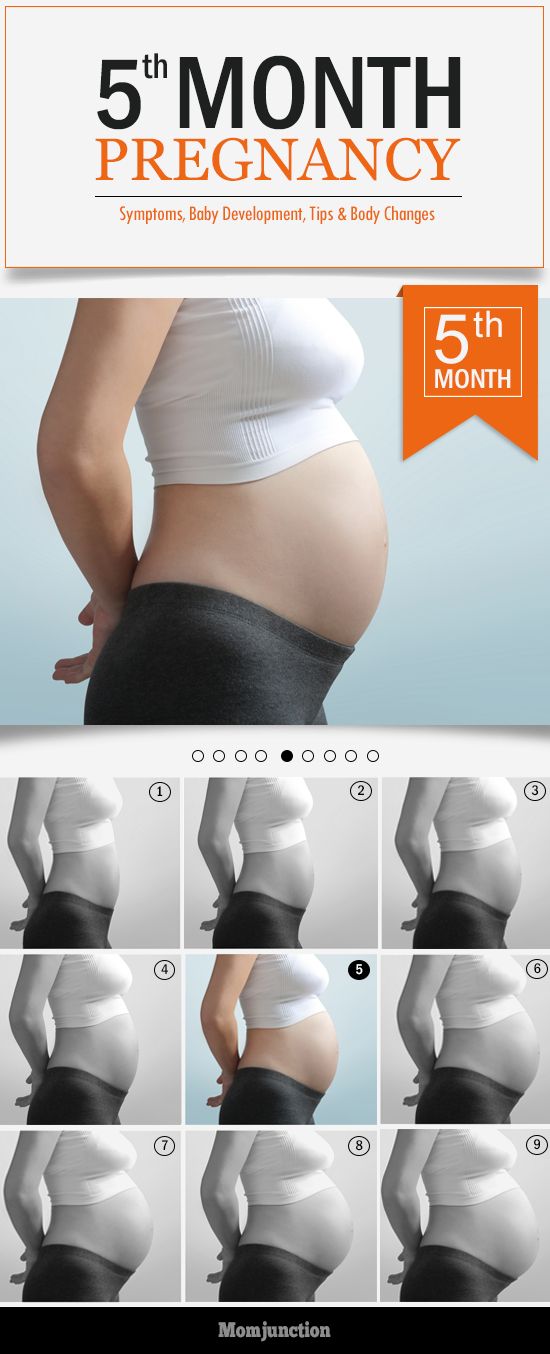 This will help restore strength and positively affect the development of the baby. nine0003
This will help restore strength and positively affect the development of the baby. nine0003
3. Comfortable underwear
Breasts are growing, and to avoid discomfort and stretch marks, you need to replace your usual underwear with more comfortable models of natural fabric bras with wide straps and comfortable cups without internal seams.
Due to the increased load, women often develop varicose veins during childbearing. To avoid serious disorders in the later stages, take care of your vessels already at 10 weeks of gestation. Walk more, do not cross your legs while sitting, and consult a phlebologist about wearing compression underwear to prevent varicose veins. nine0003
What to discuss with the doctor at the 10th week of pregnancy
1. Tests and ultrasound
If you have not been to the doctor since the beginning of pregnancy, then it's time to contact the antenatal clinic. Moreover, the deadlines for the first scheduled screening are approaching. The doctor will be able to check all aspects of pregnancy at 10 weeks and give a referral for the examinations necessary during this period:
The doctor will be able to check all aspects of pregnancy at 10 weeks and give a referral for the examinations necessary during this period:
- general blood and urine analysis;
- analysis to determine the blood group and Rh factor; nine0063 blood test for infections and various diseases;
- determination of blood glucose level;
- smear for flora and cytology.
If there are complaints or indications at the 10th obstetric week of pregnancy, the doctor may prescribe additional examinations, for example, a blood test to determine the level of the hormone hCG (human chorionic gonadotropin). It helps to understand whether the pregnancy is proceeding normally, and to eliminate the threat of its termination.
Ultrasound is rarely done at 10 weeks of gestation. Usually this procedure is carried out during the first screening - at 12 weeks. But if there is an indication, the doctor can perform an ultrasound diagnosis to take a good look at the fetus and make sure everything is in order.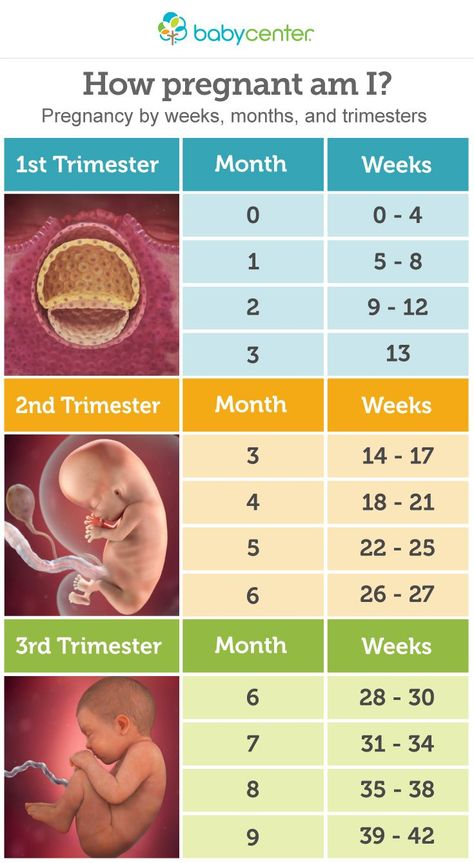 nine0003
nine0003
2. Physical activity
Pregnancy at 10 weeks is a great time when the tummy does not interfere with movement, so you can (and even need to!) go in for sports and keep your body in good shape. If before conceiving a child you regularly did fitness, yoga, ran or went to the pool, you should not give up training. But be sure to warn your trainer about pregnancy and consult with your gynecologist about the selected exercises.
If earlier you did not move much and the body is not accustomed to physical activity, you should not experiment at the 10th obstetric week of pregnancy. Start small - walk more, walk in the fresh air, do a light workout or special yoga for pregnant women. If you have contraindications or you are not sure which exercises are right for you, be sure to discuss this with your doctor. nine0003
Material approved by doctor Oksana Negrich.
All doctor's articles.
Related articles:
11 weeks pregnant
12 weeks pregnant
Last reviews
Average customer rating
226 customer ratings
Snapshot of community ratings
- five 33
- 4 35
- 3 47 nine0066
- 2 31
- one 80
10 weeks of pregnancy - what happens to the mother, the development of the fetus, sensations, what does the belly look like
WHAT HAPPENS WITH THE BABY AT 10 WEEKS?
At the 10th week of pregnancy, the process of forming the baby's organs (organogenesis) is completed in the fetus, and now they will actively progress almost until the very birth.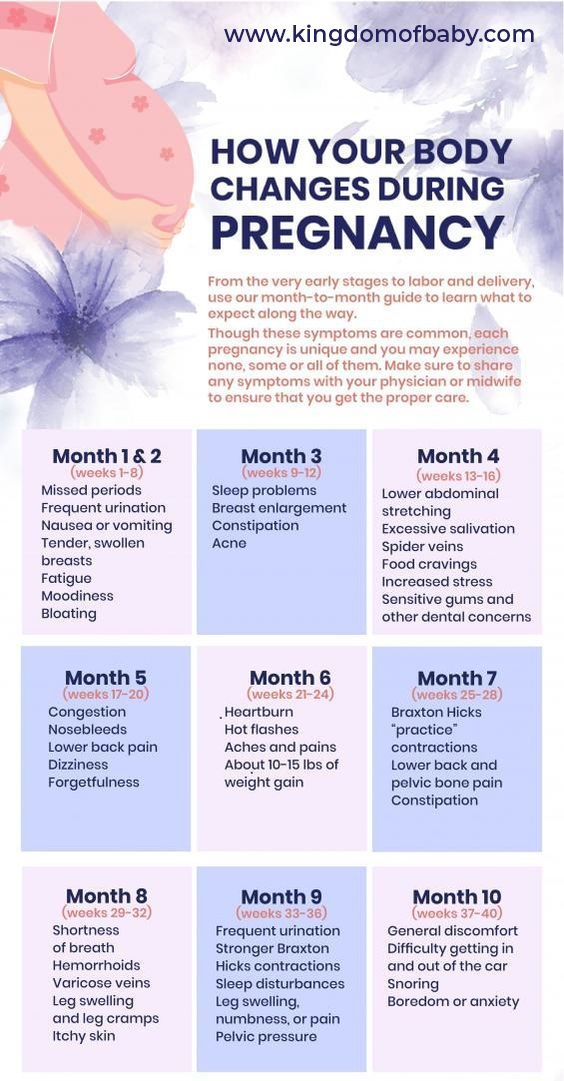
At week 10, the fetus looks like a "small plum" in size: Now the length of the fetus from crown to tailbone is from 3.1 to 4.2 cm, and its weight is on average 5 g. There is approximately 20 ml of amniotic fluid in the amniotic sac. The child already knows how to swallow and spit it out, which contributes to the development of his chewing muscles and digestive system. The brain, liver, kidneys and intestines have taken shape and are starting to work, but so far they are imperfect and will continue to develop for the rest of the time. nine0003
By the 9th - 10th week of pregnancy, marigolds appeared on the fingers and toes of your little one, and thin transparent skin is covered with fluff. The upper lip and auricles are already formed, the high forehead stands out against the background of the face. An important event of this period is brain impulses, which can now be recorded by a special device. Also, your child has an individual blood type and Rh factor. The external genitalia are not yet clearly expressed, but the male hormone testosterone has begun to be produced in the testicles of the boys.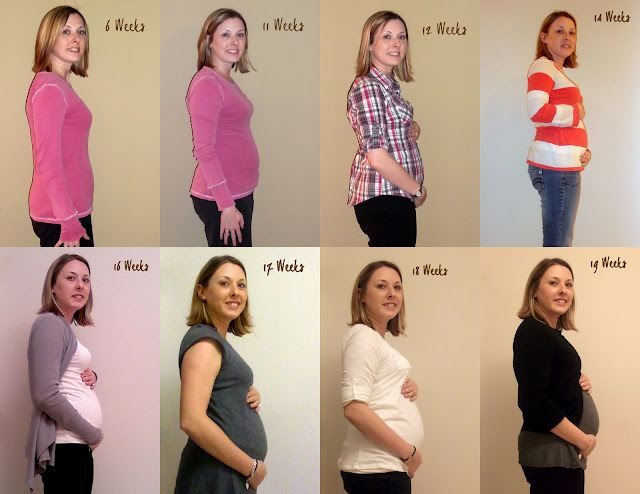 nine0003
nine0003
At the 10th week of pregnancy, the differentiation of the brain and spinal cord continues, the peripheral and central parts of the nervous system are isolated, so the movements of the baby become more ordered. He knows how to suck his thumb, make faces, bend and unbend his fists, cover his face with his hands and push off from the walls of the uterus. But until you feel it move.
WHAT'S HAPPENING TO MOTHER?
At the 10th week of pregnancy, you may be concerned about: nine0003
- toxicosis;
- tachycardia;
- sleep disturbance;
- discomfort in the groin area;
- frequent urination;
- soreness and tenderness of the breast;
- weight change;
- skin pigmentation;
- mood swings.
And now about everything in more detail!
TOXICOSIS
At this time, many women still experience its manifestations, but some lucky women note that vomiting and nausea are a thing of the past.
TACHYCARDIA
Tachycardia - an increase in the frequency of heart contractions (more than 90 beats per minute). Heart palpitations at 9 to 10 weeks of gestation can be caused by increased workload on the mother's heart, a fast metabolism, drinking caffeinated drinks, smoking, and taking certain medications. If this condition is not associated with pain, you can not worry. Otherwise, you should immediately consult a doctor. nine0003
SLEEP DISORDERS AT THE 10TH WEEKS OF PREGNANCY
Sleep disturbances in the 10th week of pregnancy are common. During the day, the expectant mother is overcome by drowsiness, and at night she is tormented by insomnia. Hormonal changes are to blame for everything. Inadequate or disturbed sleep can lead to weakness, fatigue, irritability, and headaches. The best way out of this situation is emotional release and additional rest during the day. And in the evenings, try to get rid of the disturbing thoughts that keep you awake. If your head hurts too often, consult a doctor in a women's clinic. nine0003
If your head hurts too often, consult a doctor in a women's clinic. nine0003
GRIN DISCOMFORT
Episodic pulling pains on the sides of the abdomen are often the result of tension in the ligaments of the enlarging uterus. If the pain is concentrated in the upper abdomen, it may be due to stomach problems or bowel problems. To eliminate unpleasant symptoms, review your diet; It will not be superfluous to consult a gastroenterologist.
INCREASED URINATION
If frequent trips to the toilet are not accompanied by discomfort in the genital tract, there is no talk of pathology. If there are symptoms such as pain, pain, burning, there may be an infection. nine0003
SORE AND SENSITIVE BREAST
Soreness and sensitivity of the breast is also characteristic of the 9th - 10th week of pregnancy. The body is already preparing for lactation, so such sensations should not scare you.
WEIGHT CHANGE
There may be different options here:
- If you get better little by little, then the fetus develops correctly;
- You are losing weight - this is the result of pronounced early toxicosis; nine0066
- You have a pathological increase - there is a possibility of obesity with all the ensuing problems, so the weight must be controlled.

SKIN PIGMENTATION
Perhaps you will develop age spots on your face, or you will find a dark line on your stomach. Such changes are associated with increased production of melanin, and over time, all this will disappear on its own.
MOOD CHANGES
Emotional instability due to hormonal changes in the body is normal during this period. nine0003
RISK FACTORS
At 10 weeks pregnant, there is a high risk of developing genital infections. Most often, expectant mothers are found to have candidiasis (thrush), but infection with chlamydia, gonococci, Trichomonas and other pathogenic microorganisms is not excluded. Regardless of the nature of the disease, it must be treated, otherwise intrauterine infection of the fetus may occur, and this is fraught with a violation of its development or even death. Watch for vaginal discharge. Normally, they should be transparent or light milky, of a homogeneous consistency, only a slight sour smell is possible, or it is completely absent. If the discharge becomes green-gray or yellow, if bubbles, flakes appear in them, if they resemble curdled mass and acquire a sharp unpleasant odor - immediately go to the doctor. nine0003
If the discharge becomes green-gray or yellow, if bubbles, flakes appear in them, if they resemble curdled mass and acquire a sharp unpleasant odor - immediately go to the doctor. nine0003
You should also be alerted by brown or bloody discharge at 10 weeks of gestation. A small amount of blood may appear after an examination by a gynecologist or after sexual intercourse. Most often this is due to erosion of the cervix, the loose tissues of which are damaged by external intervention. But when cramping pains in the abdomen join the discharge, this may be a sign of spontaneous abortion. Therefore, if you find yourself with such symptoms, immediately seek qualified help: a timely response is a chance to save the child. nine0003
MEDICAL SUPERVISION
Usually at the 10th week of pregnancy, a routine ultrasound examination is not done. At this time, the doctor will only determine the date of the new ultrasound session and refer you to blood and urine tests.
Also, starting from the 10th week, it is very important to control the level of sugar in the blood. This is especially true for expectant mothers who are overweight and those who have a hereditary predisposition to diabetes. An increase in blood sugar may be due to emotional distress or overeating. The norm varies from 4 - 5.2 mmol / l (on an empty stomach) to 6.7 mmol / l (a couple of hours after eating). In case of overestimated rates, it is necessary to consult an endocrinologist. nine0003
This is especially true for expectant mothers who are overweight and those who have a hereditary predisposition to diabetes. An increase in blood sugar may be due to emotional distress or overeating. The norm varies from 4 - 5.2 mmol / l (on an empty stomach) to 6.7 mmol / l (a couple of hours after eating). In case of overestimated rates, it is necessary to consult an endocrinologist. nine0003
RECOMMENDATIONS
At the 10th week of pregnancy, your baby's baby teeth are laid. This means that the diet should focus on foods containing calcium (legumes, almonds, sesame and poppy seeds, wholemeal bread, leaf and watercress, rose hips, broccoli, asparagus, carrots, radishes, sardines, salmon, milk and dairy products). Enrich your diet with them, because your teeth can also suffer from a lack of calcium. And the body also needs iodine - now it begins to accumulate in the baby's thyroid gland. nine0003
Continue to monitor your health as the 10th week of pregnancy begins.
- Take care of proper nutrition. Reduce the amount of fatty and fried foods, smoked meats in your diet. It is better if you stew, bake or steam dishes. Limit salt and sugar intake;
- Be physically active. Overloads should not be allowed, but as long as the tummy does not interfere, you can go swimming, yoga, gymnastics for pregnant women, take daily walks in the fresh air. This will improve metabolism and enrich the blood with oxygen; nine0066
- Drink enough fluids at 10 weeks of pregnancy to prevent dehydration. Drink water, freshly squeezed juices, do not neglect first courses, eat more seasonal berries and fruits that contain a lot of vitamins and water (watermelons, melons, pears, oranges, grapes, etc.). Extra fluid will help maintain skin elasticity, increase blood flow, maintain normal amniotic fluid volume, reduce the risk of genital infections and relieve constipation; nine0066
- Learn to relax, recharge with positive emotions: meet friends, remember your hobby or discover some new interesting hobby.
